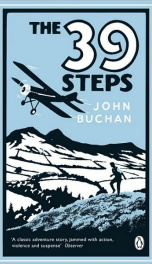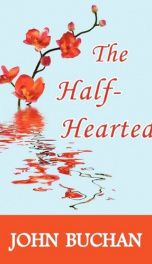Buchan John

John Buchan, 1st Baron Tweedsmuir PC CH GCMG GCVO (26 August 1875 – 11 February 1940) was a British novelist and Unionist politician who, between 1935 and 1940, served as the Governor General of Canada. He was born and primarily educated in Scotland, and further schooled in England, obtaining a degree in Literae Humaniores, and befriending a number of influential future writers while studying at the University of Oxford. After a brief career in law, Buchan simultaneously began writing and his political and diplomatic career, serving as a private secretary to the colonial administrator of various colonies in Southern Africa, and eventually wrote propaganda for the British war effort following the outbreak of the First World War. Once back in civilian life, Buchan was elected the Member of Parliament for the Combined Scottish Universities, but spent most of his time on his writing career. He wrote The Thirty-Nine Steps and other adventure fiction. On the recommendation of Canadian Prime Minister Richard Bennett, Buchan was appointed by George V, the king of Canada, as the Canadian viceroy, succeeding in that role the Earl of Bessborough.[1] Buchan proved to be enthusiastic about literacy as well as the evolution of a distinct Canadian culture. He died in 1940, suffering the consequences of a stroke at Rideau Hall. He received a state funeral in Canada, and his ashes were returned to the UK and intered at Elsfield, Oxfordshire. Buchan was the first child of John Buchan – a Free Church of Scotland minister – and Helen Jane Buchan. Born in Perth, Buchan was raised in Kirkcaldy, Fife, and spent many summer holidays with his grandparents in Broughton, in the Scottish Borders. There he developed a love of walking, as well as for the local scenery and wildlife, which often featured in his novels; the name of a protagonist in a number of Buchan's books – Sir Edward Leithen – is borrowed from the Leithen Water, a tributary of the River Tweed. After attending Hutchesons' Grammar School, Buchan was awarded a scholarship at 17 to the University of Glasgow, where he studied classics, wrote poetry and became a published author. With a Junior Hulme scholarship, he moved on in 1895 to study Literae Humaniores (the Oxon term for 'the Classics') at Brasenose College, Oxford.[2] There he befriended a number of individuals, including Hilaire Belloc, Raymond Asquith and Aubrey Herbert. Buchan won both the Stanhope essay prize in 1897 and the Newdigate Prize for poetry the following year,[2] as well as being elected as the president of the Oxford Union, and having six of his works published.[3] It was at around the time of his graduation from Oxford that Buchan had his first portrait painted, done in 1900 by a young Sholto Johnstone Douglas.[4] Buchan entered into a career in diplomacy and government after graduating from Oxford, becoming the private secretary to colonial administrator Alfred Milner, who was then the High Commissioner for Southern Africa, the Governor of Cape Colony, and the colonial administrator of Transvaal and the Orange Free State. This posting put Buchan in what came to be known as Milner's Kindergarten, and gave him an acquaintance with a country that would feature prominently in his writing, which, along with entering into a partnership in the Thomas Nelson & Son publishing company, and becoming editor of The Spectator,[5] he resumed upon his return to London. Buchan also read for and was called to the Bar in 1907,[1] though he did not practice as a lawyer,[6] and, on 15 July of the same year, married Susan Charlotte Grosvenor – a cousin of Hugh Grosvenor, Duke of Westminster – and together they had four children, two of whom would spend most of their lives in Canada.[1] Buchan wrote Prester John in 1910, the first of his adventure novels set in South Africa, and the following year he suffered from duodenal ulcers, which also inspired one of his characters in later books. At the same time, Buchan tread into the political arena, and ran as a Unionist candidate in a Scottish Borders riding; he supported free trade, women's suffrage, national insurance, and curtailing the powers of the House of Lords,[7] though he did also oppose the welfare reforms of the Liberal Party, and what he considered to be the "class hatred" fostered by demagogic Liberals like David Lloyd George.[8] With the outbreak of the First World War, Buchan went to write for the British War Propaganda Bureau, and worked as a correspondent in France for The Times. He continued to write fiction, however, and in 1915 published his most famous work: The Thirty-Nine Steps, a spy-thriller set just prior to World War I. The novel featured Buchan's oft used hero, Richard Hannay, which was a character based on Edmund Ironside, a fellow who had been a friend of Buchan from the latter's days in South Africa. The following year, Buchan published a sequel to The Thirty-Nine Steps: Greenmantle, and then enlisted in the British Army, becoming a 2nd lieutenant in the Intelligence Corps, where he wrote speeches and communiqués for Sir Douglas Haig. Recognised for his abilities, Buchan was in 1917 appointed as the Director of Information, under Max Aitken, Baron Beaverbrook[1] – a job Buchan said was "the toughest job I ever took on"[9] – and also assisted Charles Masterman in carrying out one of his early projects: publishing a monthly magazine that detailed the history of the war, with the first edition appearing in February 1915. It was difficult however, given his close connections to many of Britain's military leaders, for Buchan to be critical of the British Army's conduct during the conflict.[10] This was also published in 24 volumes as Nelson's History of the War from 1915-1919. Following the close of the war, Buchan, along with his usual thrillers and novels, turned his attention to writing on historical subjects. By the mid-1920s, he was living in Elsfield, had become the President of the Scottish Historical Society, a trustee of the National Library of Scotland,[1] and maintained ties with various universities; Robert Graves, who lived in nearby Islip, mentioned his being recommended by Buchan for a lecturing position at the then newly founded Cairo University, and, in a 1927 by-election, Buchan was elected as the Unionist Party member of parliament for the Combined Scottish Universities. Politically, he was of the Unionist-Nationalist tradition, believing in Scotland's promotion as a nation within the British Empire.[N 1] The effects of the Great Depression in Scotland, and the subsequent high emigration from that country, also led Buchan to reflect: "We do not want to be like the Greeks, powerful and prosperous wherever we settle, but with a dead Greece behind us,"[11] and he found himself profoundly affected by John Morley's Life of Gladstone, which Buchan read in the early months of the Second World War. He believed Gladstone had taught people to combat materialism, complacency, and authoritarianism; Buchan later wrote to Herbert Fisher, Stair Gillon, and Gilbert Murray that he was "becoming a Gladstonian Liberal."[12] After Buchan's branch of the Free Church of Scotland joined in 1929 with the Church of Scotland, he remained an active elder of St. Columba's Church in London, as well as of the Oxford Presbyterian parish. In 1933 and 1934, Buchan was further appointed as the King's Lord High Commissioner to the General Assembly of the Church of Scotland. However, beginning in 1930, Buchan also aligned himself with Zionism and the related Palestine All Party Parliamentary Group.[13] In recognition of his contributions to literature and education, on 1 January 1932, Buchan was granted the personal gift of the sovereign of induction into the Order of the Companions of Honour.[14] In 1935, Buchan's literary work was adapted to the cinematic theatre with the completion of Alfred Hitchcock's The 39 Steps, starring Robert Donat as Richard Hannay, though with the story of Buchan's The Thirty-Nine Steps much altered. This came in the same year that Buchan was, on 23 May, honoured with appointment to the Order of St. Michael and St. George,[15] as well as being elevated to the peerage, when he was on 1 June created by King George V as Baron Tweedsmuir of Elsfield in the County of Oxford.[16] This had been done in preparation for Buchan's appointment as governor general of Canada; Canadian Prime Minister William Lyon Mackenzie King had recommended to the King that he allow Buchan to be viceroy as a commoner, but George V insisted that he be represented by a peer. It was announced from the Prime Minister's office on 10 August 1935 that the King had, by commission under the royal sign-manual and signet, approved the recommendation of his Canadian prime minister, Mackenzie King, to appoint Buchan as his representative. Buchan then departed for Canada, and, on 2 November 1935 was sworn in as the country's governor general in a ceremony in the salon rouge of the parliament buildings of Quebec. Buchan was the first Canadian viceroy appointed since the enactment on 11 December 1931 of the Statute of Westminster, and was thus the first to have been decided on solely by the monarch of Canada in his Canadian council. Though Buchan continued writing during his time as governor general, he also thereafter took his position as viceroy with seriousness, and from the outset made it his goal to travel the length and breadth of Canada, including, for the first time for a governor general,[3] the Arctic regions; he said of his job: "a Governor General is in a unique position for it is his duty to know the whole of Canada and all the various types of her people". Buchan also encouraged a distinct Canadian identity and national unity, despite the ongoing Great Depression and the difficulty it caused for the population.[1] Not all Canadians, however, shared Buchan's views; the Baron raised the ire of imperialists when he said in Montreal in 1937: "a Canadian's first loyalty is not to the British Commonwealth of Nations, but to Canada and Canada's King,"[17] a statement the Montreal Gazette dubbed as "disloyal."[18] At the same time, Buchan was championing an early form of multiculturalism in Canada; from his installation speech onwards, he maintained and recited his idea that ethnic groups "should retain their individuality and each make its contribution to the national character," and "the strongest nations are those that are made up of different racial elements."[19]
do you like this author?
What readers are saying
What do you think? Write your own comment on this book!
write a commentWhat readers are saying
What do you think? Write your own comment on this author!
write a commentBook list

The African ColonyStudies in the Reconstruction
Series:
Unknown
Year:
Unknown
Raiting:
2.5/5
Show more
add to favoritesadd In favorites

The 39 Steps
Series:
Unknown
Year:
Unknown
Raiting:
4/5
The Thirty-Nine Steps was published in1915. The action of an adventure novel by John Buchan, 1st Baron Tweedsmuir, a Scottish Unionist politician and novelist, takes place during the First World War. It became the first of five novels featuring Richard Hannay, an all-action hero with a stiff upper lip and a miraculous habit of getting himself out of sticky situations. Here the Canadian is accused of the murder of a young woman who was killed in his hotel room; and tries to solve a mystery of “the thirty-nine steps”. The book was later adapted for film, Alfred Hitchcock being the first to make a movie in 1935, based on this most famous Buchan’s novel.
Show more
add to favoritesadd In favorites
Book list

The African ColonyStudies in the Reconstruction
Series:
Unknown
Year:
Unknown
Raiting:
2.5/5
Show more
add to favoritesadd In favorites

The 39 Steps
Series:
Unknown
Year:
Unknown
Raiting:
4/5
The Thirty-Nine Steps was published in1915. The action of an adventure novel by John Buchan, 1st Baron Tweedsmuir, a Scottish Unionist politician and novelist, takes place during the First World War. It became the first of five novels featuring Richard Hannay, an all-action hero with a stiff upper lip and a miraculous habit of getting himself out of sticky situations. Here the Canadian is accused of the murder of a young woman who was killed in his hotel room; and tries to solve a mystery of “the thirty-nine steps”. The book was later adapted for film, Alfred Hitchcock being the first to make a movie in 1935, based on this most famous Buchan’s novel.
Show more
add to favoritesadd In favorites

The Moon Endureth: Tales and Fancies
Series:
Unknown
Year:
Unknown
Raiting:
3/5
John Buchan's classic collection of dark and fanciful short stories and poetry contains such classics as "The Grove of Ashtaroth," "The Riding of Ninemileburn," "The Company of the Marjolaine," and "The Rime of True Thomas."
Show more
add to favoritesadd In favorites

The Half-Hearted
Series:
Unknown
Year:
Unknown
Raiting:
3.5/5
From the heart of a great hill land Glenavelin stretches west and south to the wider Gled valley where its stream joins with the greater water in its seaward course.' (Excerpt from Chapter 1) --This text refers to an alternate Paperback edition.
Show more
add to favoritesadd In favorites
What readers are saying
What do you think? Write your own comment on this author!
write a commentGenre
- Books
- Religion & Spirituality / Christianity / Worship & Devotion / Book of Common Prayer
- Travel / Europe / Greece
- Books / Biographical fiction
- Books / Electronic books
- Literature & Fiction / Classics
- Religion & Spirituality / Christianity / Literature & Fiction / Fiction
- Literature & Fiction / Poetry / Anthologies
- Religion & Spirituality / Spirituality / Devotionals
if you like Buchan John try:
readers also enjoyed
What readers are saying
What do you think? Write your own comment on this author!
write a commentGenre
- Books
- Religion & Spirituality / Christianity / Worship & Devotion / Book of Common Prayer
- Travel / Europe / Greece
- Books / Biographical fiction
- Books / Electronic books
- Literature & Fiction / Classics
- Religion & Spirituality / Christianity / Literature & Fiction / Fiction
- Literature & Fiction / Poetry / Anthologies
- Religion & Spirituality / Spirituality / Devotionals
if you like Buchan John try:
readers also enjoyed
Do you want to exchange books? It’s EASY!
Get registered and find other users who want to give their favourite books to good hands!

